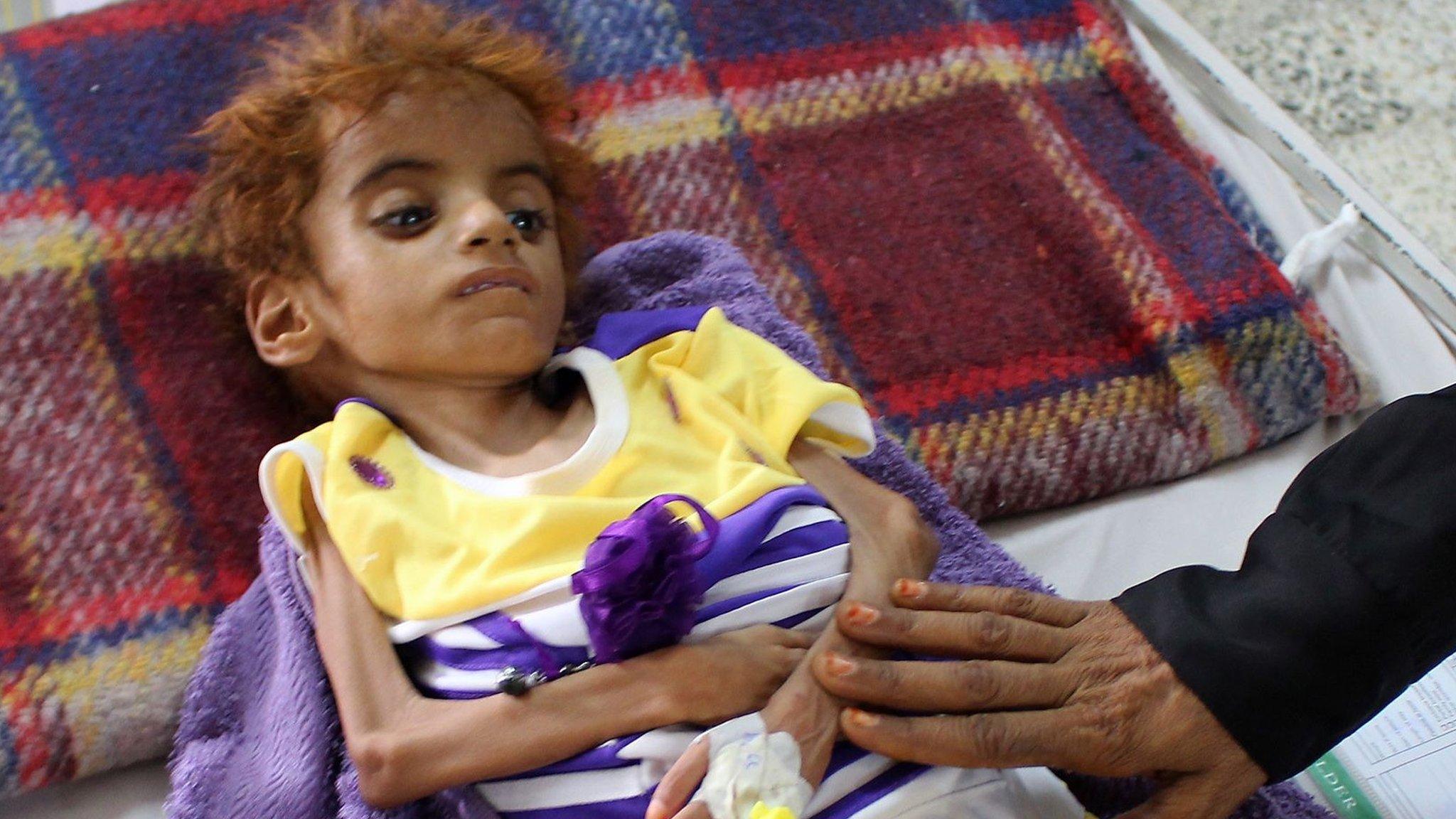Yemen war: Battle for vital port of Hudaydah intensifies
- Published
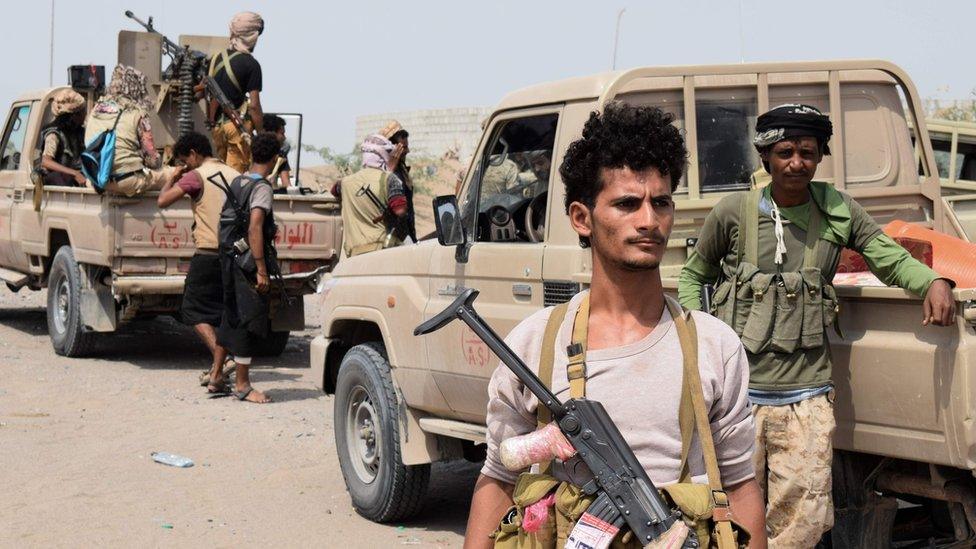
Pro-government forces have made limited advances on the outskirts of Hudaydah
The battle for the Yemeni port city of Hudaydah has intensified, as government forces backed by Saudi-led coalition air strikes advance on rebel positions.
More than 150 people are reported to have been killed since troops and militiamen stepped up a ground assault on the city's outskirts last Thursday.
The UN and charities say the fighting is also endangering medical facilities and hundreds of thousands of civilians.
Hudaydah's port is a lifeline for millions of Yemenis at risk of famine.
Up to 80% of the humanitarian supplies, fuel and commercial goods on which they depend are delivered through the facility. UN officials have warned that the toll in lives could be catastrophic if it is damaged, destroyed or blocked.
The UN says Yemen is on the brink of the world's worst famine in 100 years if the war continues
Yemen has been devastated by a conflict that escalated in 2015, when Arab states intervened after the rebel Houthi movement seized control of much of the west of the country and forced President Abdrabbuh Mansour Hadi to flee abroad.
At least 6,660 civilians have been killed and 10,560 injured in the war, according to the UN. The fighting and a partial blockade by the coalition have also left 22 million people in need of humanitarian aid, created the world's largest food security emergency, and led to a cholera outbreak that has affected 1.1 million people.
The offensive on Hudaydah, which is led by the United Arab Emirates, began in June.
Pro-government soldiers and militiamen made swift progress initially, capturing the city's southern suburbs and airport. But they did not push into the city centre, where rebel fighters set up sniper positions, dug trenches in streets, and laid landmines.
The escalation in fighting last week came after the US - which has provided logistical and intelligence support to the coalition along with the UK and France - called for a cessation of hostilities and the start of peace talks by late November.
Two hundred air strikes were reported in and around Hudaydah on Saturday alone, external, and aid workers say there have been intense clashes around the airport, to the east of the city, and near a university to the west.
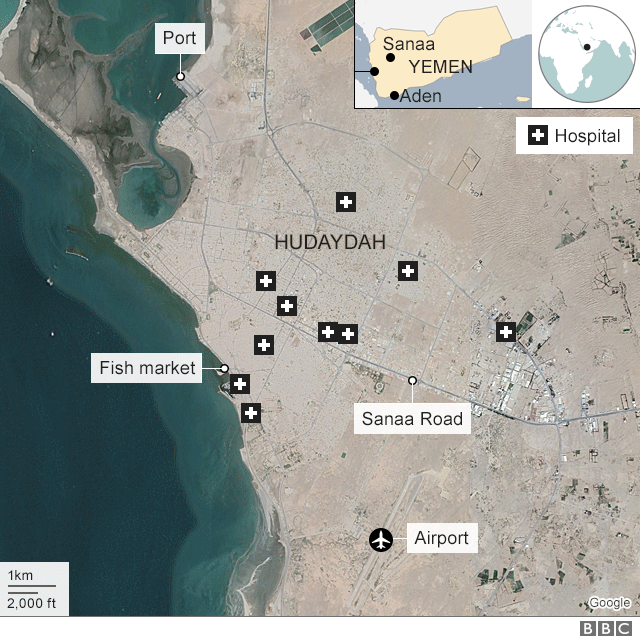
On Wednesday, Save the Children said a health facility it supports in Hudaydah had come under attack, external, damaging a pharmacy supplying desperately needed medicine.
Artillery shells had also hit residential areas and temporary roadblocks had prevented people from leaving or entering the city overnight, in effect trapping them in an active conflict zone, it added.
The UN Children's Fund (Unicef) warned on Tuesday that the fighting was "dangerously close" to the Al-Thawra hospital in southern Hudaydah, external, putting the lives of 59 children, including 25 in intensive care, at imminent risk of death.
"Medical staff and patients in the hospital have confirmed hearing heavy bombing and gunfire. Access to and from the hospital, the only functioning one in the area, is now imperilled," executive director Henrietta Fore said.
Orla Guerin meets sick children in Yemen
"Children in particular cannot afford for Al-Thawra to be caught up in the fighting. Hudaydah and the neighbouring governorates account for 40% of the 400,000 children in the country who suffer from severe acute malnutrition. Some of the sickest are taken to the hospital for urgent care," she added.
The International Committee for the Red Cross (ICRC) also expressed concern about the fighting near the Al-Thawra hospital and called on all parties to respect international humanitarian law and to spare civilians and civilian infrastructure.
Meanwhile, human rights group Amnesty International said gunmen entered another hospital in the 22 May district of the city and took positions on the roof, raising the risk of air strikes against the building.
"Placing gunmen on a hospital roof blurs lines which should never be blurred," said Samah Hadid, the group's Middle East campaign director.
"This is a stomach-churning development that could have devastating consequences for the hospital's medical workers and dozens of civilian patients."
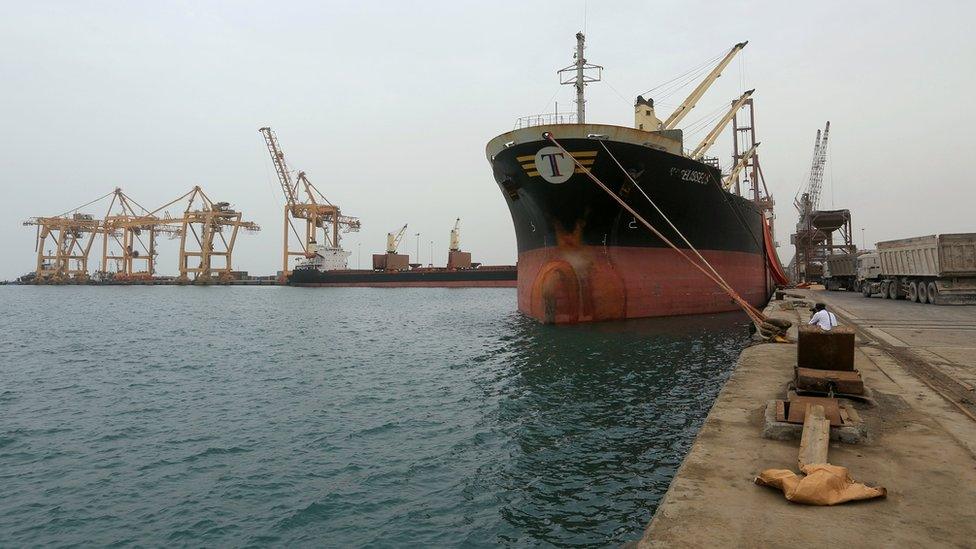
Up to 80% of Yemen's aid supplies, fuel and commercial goods arrive at Hudaydah's port
The Houthi-run human rights ministry meanwhile accused the coalition of targeting grain silos in Hudaydah, external, where tens of thousands of tonnes of wheat and flour are stored, along with local roads, bridges, factories and markets.
The coalition has said it does not intend to capture Hudaydah city or the port, but its forces may attempt to encircle them and impose a siege before the end of the month, when UN special envoy Martin Griffiths hopes peace talks will resume.
The coalition has accused the Houthis of using Hudaydah to smuggle in weapons from their ally Iran. Both Iran and the rebels have denied this.
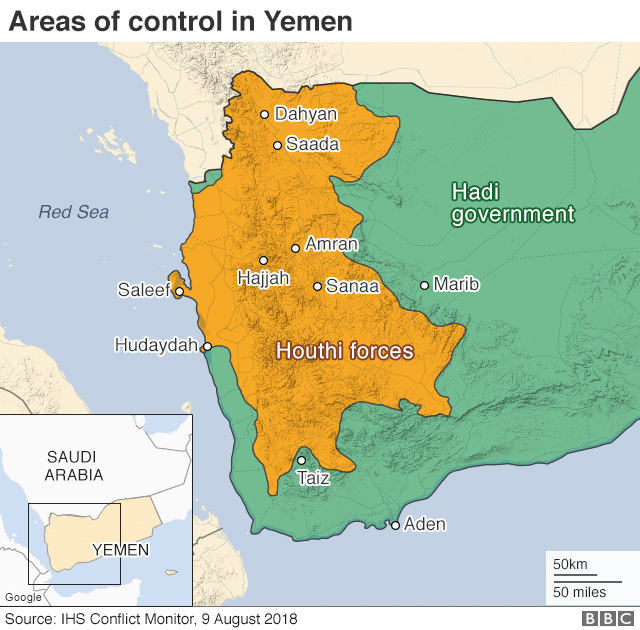
- Published31 October 2018
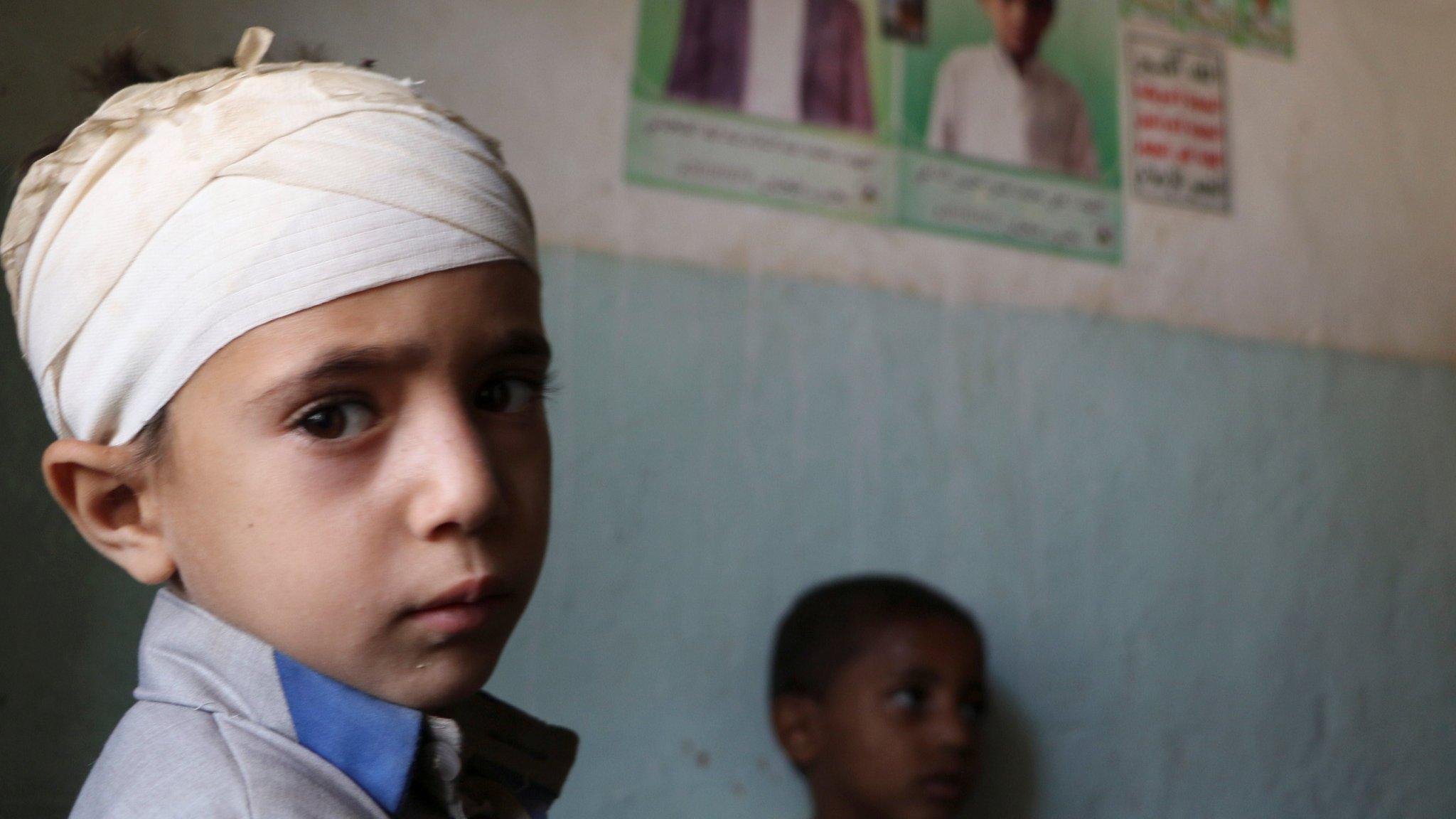
- Published31 October 2018
- Published24 October 2018
